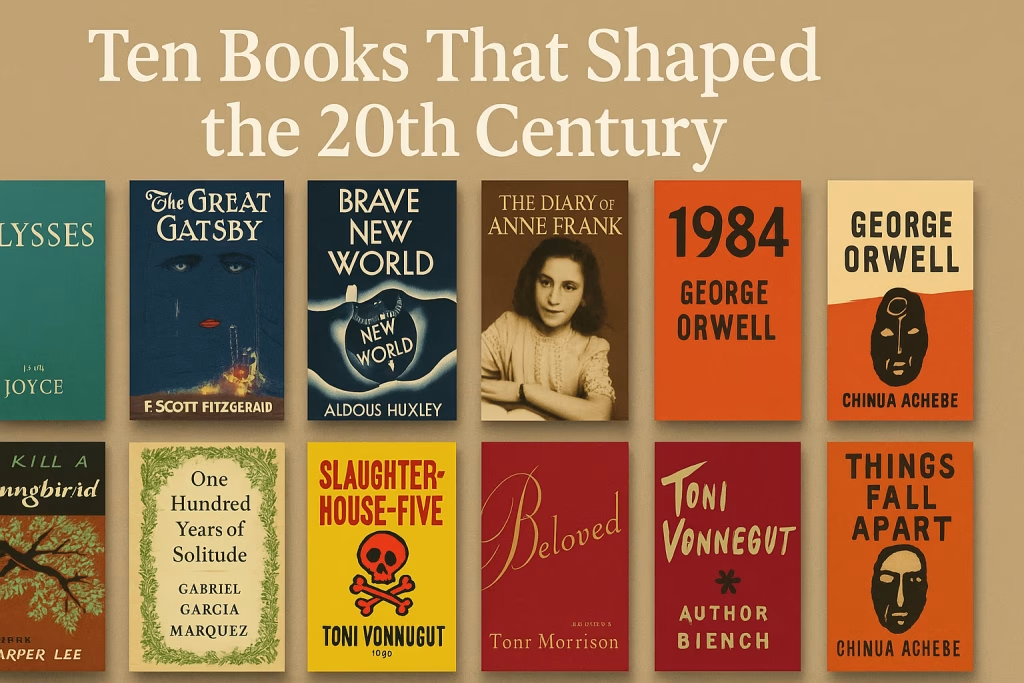The 20th century was a time of immense social, political, and cultural transformation—and its literature reflected that upheaval. Writers across the globe broke boundaries, challenged norms, and gave voice to the human condition in new and profound ways. The following ten books are widely considered the most significant of the era for how they redefined storytelling, confronted injustice, and left an enduring impact on readers and societies alike.
“Ulysses” by James Joyce (1922)
A landmark in modernist literature, Ulysses revolutionized narrative form with its stream-of-consciousness technique. It mirrored the complexities of human thought and language, forever changing how stories could be told.
“The Great Gatsby” by F. Scott Fitzgerald (1925)
This brief but powerful novel captured the disillusionment of the American Dream. Its themes of wealth, identity, and moral decay during the Jazz Age continue to resonate today.
“Brave New World” by Aldous Huxley (1932)
Huxley’s dystopia predicted a future dominated by consumerism, technology, and state control. Its warnings about the loss of individuality remain chillingly relevant.
“The Diary of Anne Frank” (1947)
A deeply personal account of hiding during the Holocaust, Anne Frank’s diary became a universal symbol of hope, humanity, and the horrors of war. It brought the personal toll of genocide to the world’s attention.
“1984” by George Orwell (1949)
A grim look at totalitarianism, Orwell’s novel introduced terms like “Big Brother” and “thoughtcrime” into the global lexicon. It remains a critical caution against authoritarian regimes.
“To Kill a Mockingbird” by Harper Lee (1960)
Tackling race, justice, and morality in the American South, Lee’s novel became essential reading in classrooms for its powerful social commentary and moral clarity.
“One Hundred Years of Solitude” by Gabriel García Márquez (1967)
This magical realist masterpiece fused myth and history, influencing global literature and showcasing the richness of Latin American storytelling.
“Slaughterhouse-Five” by Kurt Vonnegut (1969)
Mixing science fiction with anti-war commentary, Vonnegut’s novel portrayed the trauma of WWII with dark humor and philosophical depth.
“Beloved” by Toni Morrison (1987)
A haunting look at slavery’s legacy, Morrison gave voice to African American suffering and resilience. It became a literary cornerstone of postcolonial and feminist studies.
“Things Fall Apart” by Chinua Achebe (1958)
By telling Africa’s story from an African perspective, Achebe countered colonial narratives and became a foundational text in world literature.
These ten books not only defined literary innovation in the 20th century but also helped shape global consciousness. They challenged political systems, explored cultural identities, and gave voice to previously unheard perspectives. From the fragmented modernism of Ulysses to the postcolonial power of Things Fall Apart, each work reflected and influenced the tumultuous century in which it was written. Their themes—freedom, identity, justice, trauma, and memory—continue to impact readers, making them essential not just as literature, but as lasting testaments to human experience.



